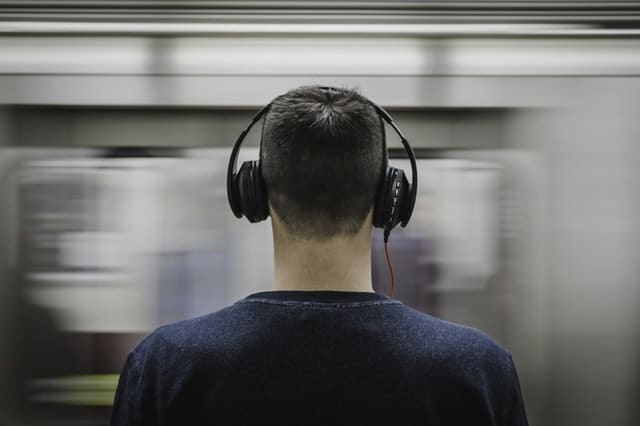Hearing loss is a widespread concern in Los Angeles and across Southern California. Contrary to popular belief, it isn’t confined to senior citizens; people can develop a hearing impairment at any age—especially if they are exposed to frequent noise.
Listening to Music Safely

What causes hearing loss?
The world is a noisy place. It’s no wonder hearing loss is considered a global epidemic! There are many factors that contribute to hearing impairment, including age, disease, trauma and certain drugs, but noise is the most frequent cause of hearing loss in Los Angeles.
How does noise damage hearing?
Noise pollution is inescapable in our daily lives. Busy traffic, airplanes, construction, lawn mowers and leaf blowers all contribute.
Over time, noise damages the tiny hair cells of the cochlea that are responsible for converting sounds into electrical signals that are sent to the brain for processing. Sounds that exceed 85 decibels (dB) can cause irreversible damage; the louder the sound, the more quickly these cells will be destroyed.
Does loud music harm hearing?
Music is one of the most common causes of hearing loss, especially in teenagers and young adults. We’re not just referring to concerts, either; the simple act of listening to music through earbuds or headphones on smart devices and computers can be harmful.
How long can you safely listen to music?
You can listen to music at 85 dB for eight hours without harm, but every 3-decibel increase in volume cuts your safe exposure time in half. Raising the volume to 94 dB reduces the length of time you can listen without harm to one hour, and at 100 dB—a pretty slight adjustment—damage can occur in as little as 15 minutes.
People who listen through earbuds or headphones tend to keep raising the volume level to compensate for external noise; when listening to music on a regular basis, it doesn’t take long for their hearing to be affected.
How can you prevent music-related hearing loss?
The best solution to the problem is noise-cancelling headphones. These devices block out background noise, allowing you to listen to music at a lower volume. You won’t find yourself raising the volume in gradual increments to offset background noise because you won’t be able to hear any other sounds. In the long run, this helps preserve your hearing.
What are your noise-canceling headphone options?
The question is, what kind of noise-cancelling headphones should you invest in? There are two different types:
- Passive noise-cancelling (PNC) headphones use the materials they are made of to block environmental sounds. The physical design of their ear cups acts as a seal to protect your ears from external noise. PNC headphones offer a tight fit and are a bit heavy, but they are very effective at drowning out background noise, including sudden loud sounds and high-pitched frequencies.
- Active noise-cancelling (ANC) headphones rely on sound-matching technology that analyzes ambient noise and generates a sound wave with the same amplitude but an inverse 180-degree phase to “cancel” the background sound. They are best suited to environments where the overall background noise remains constant.
Is one option better than another?
Either type of noise-cancelling headphone will protect your hearing; which one you choose depends on when and where you listen to music most often.
PNC headphones help protect people who work in noisy occupations such as construction or the military, and those who are exposed to sudden loud sounds such as gunshots.
ANC headphones do not have the protective seal that prevents sudden transient noise from entering, but are ideal for employees who spend most of their time in the office, commuters who rely on public transportation and people who primarily listen to music at home.
No matter which type you select, be sure to heed safety warnings. Noise-cancelling headphones should never be worn outdoors; they can prevent you from hearing oncoming traffic, sirens and other warnings, increasing your risk of an accident.
If you’d like more information on ways to protect your hearing from noise damage, contact an audiologist in Los Angeles.
Learn more about hearing loss:
- FACTS ABOUT HEARING LOSS IN CALIFORNIA
- CAN YOUR HEARING LOSS BE CORRECTED WITH SURGERY?
- EXPLORING THE CONNECTION BETWEEN HEARING LOSS AND COGNITIVE DECLINE
Los Angeles Area Audiologists Office Locations
LA Audiologist Office Map
2100 West 3rd Street
Los Angeles, CA 90057
(213) 483-9930